Savvy Spotlight: Megumi And Trevor Moss Of CareFinder
One Couple's Mission To Save Date Night — For Them And Other Parents
The couple behind one of Japan's fastest growing bilingual babysitting service companies shares how they started their journey together, what motivates them, and where they see their business going in the future.
When American-born Trevor and Shiga prefecture-native Megumi met around 15 years ago, they never imagined that life would have them settle down in one of the busiest cities in the world. Now, married for nine years, raising a daughter and running a babysitting business together in Tokyo, the couple looks back. They’ve walked a long road together, and now they’re helping to bring the fun and romance back to date night — for themselves and other busy parents.
After working at a major Japanese company for over 10 years, Megumi had seen enough women quit their jobs after having children or who couldn’t climb the corporate ladder due to family obligations. When she seriously considered having children herself, she began thinking that a major Japanese company wouldn’t be ideal for the work-life balance she hoped for her family. So in 2013, with the help of Trevor, the two established CareFinder, a bilingual babysitter-matching platform that now — with over 1,000 registered users — has grown to become a recognized parental support company with the international community in Japan. The key to success, the two say, is that the company relies on bonds between people: “It’s a community, not an agency.”
Savvy Tokyo visited the couple at their office in Akasaka to learn more about their business and the ins and outs of working together as a married couple.
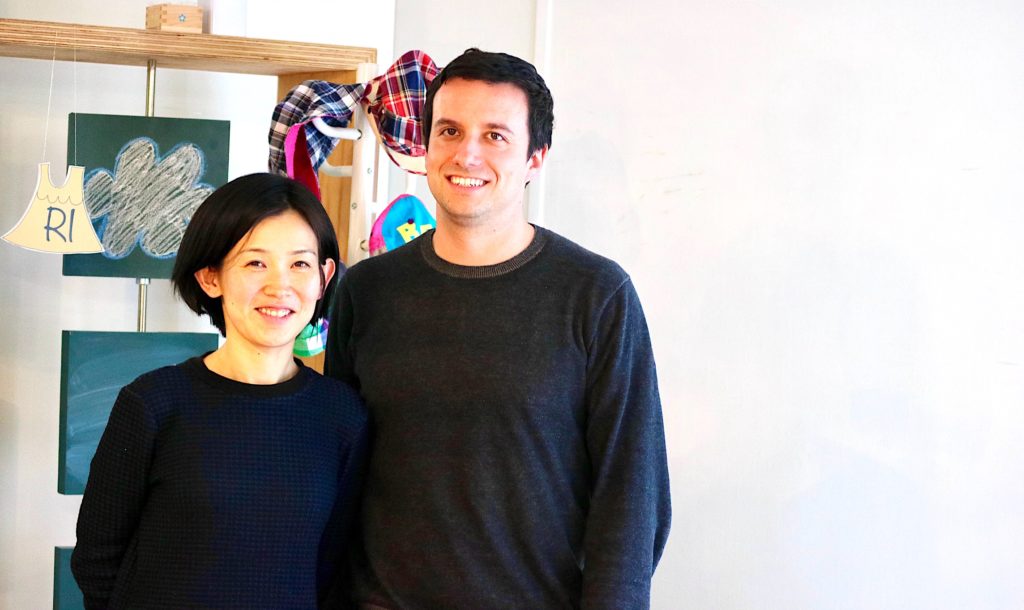
Megumi and Trevor Moss at their office in Tokyo’s Akasaka.
Tell us about your backgrounds and what brought you together?
Megumi Moss: Originally from Shiga prefecture, I spent most of my 20s working for Sony here in Tokyo. We met with Trevor approximately 15 years ago.
Trevor Moss: I used to do karate and that got me studying Japanese in high school and then college. After coming to Tokyo in the early 2000s, I went on to work in finance in Japan, but after CareFinder started growing, I thought that we need to do it all the way through. So I quit my job (this year) and I’m now devoted to the company fully.
What made you start this business?
MM: When I was at Sony, I used to work in a very male-dominated environment with a lot of overtime work. At one point, I started thinking that it would be difficult to have a child given the lifestyle I had at the time. I spoke with Trevor and he told me that we could hire a babysitter when we had kids and that the service is very popular abroad. I did some quick research and discovered that although there are quite a few babysitting agencies in Japan, they tend to be quite expensive. We thought that maybe we could introduce a freelance babysitting service in Japan. So, we started the CareFinder website and after one month I told my boss I’m quitting. Then I got pregnant, so we sort of raised CareFinder and our daughter at the same time.
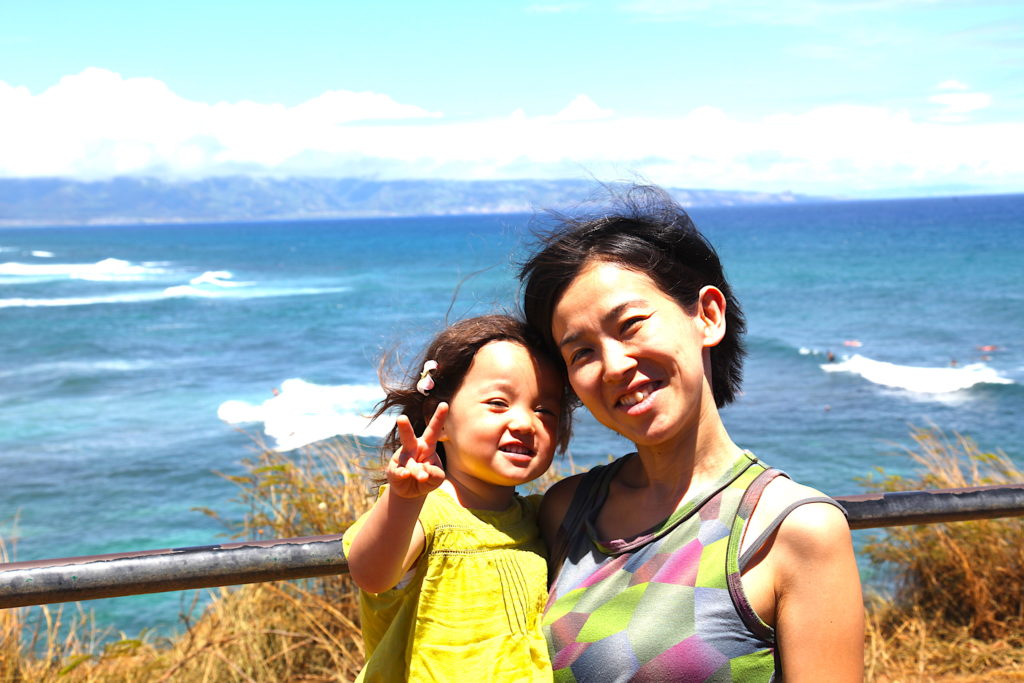
Raising a daughter and a company simultaneously: Megumi poses with their daughter, who is now three years old.
Did you have any concerns whether the business would do well in Japan?
TM: We did. But we figured that things are changing in Japan, so we’d rather try and fail than not try at all. But I think that things are definitely changing in Japan and the demand [for babysitters] has gotten very high.
What was the start like?
TM: Gaining brand recognition was the most difficult aspect when we started. In the beginning, we were targeting everyone, but that didn’t work well so we focused primarily on the expat community and that really got it going. We now have over 1,000 users, mostly organic and mostly through the word-of-mouth. We also did a pre-launch party where a lot of the participants signed up, which was very fortunate.
What makes CareFinder different from the competition?
TM: CareFinder is not a babysitting agency, it’s an international community to find and build bonds between families and babysitters. The community aspect is really unique. You’re not only looking for someone to care for your kid, but also to bond with your kid. Also, over half of the babysitters speak different languages, which is another big difference.
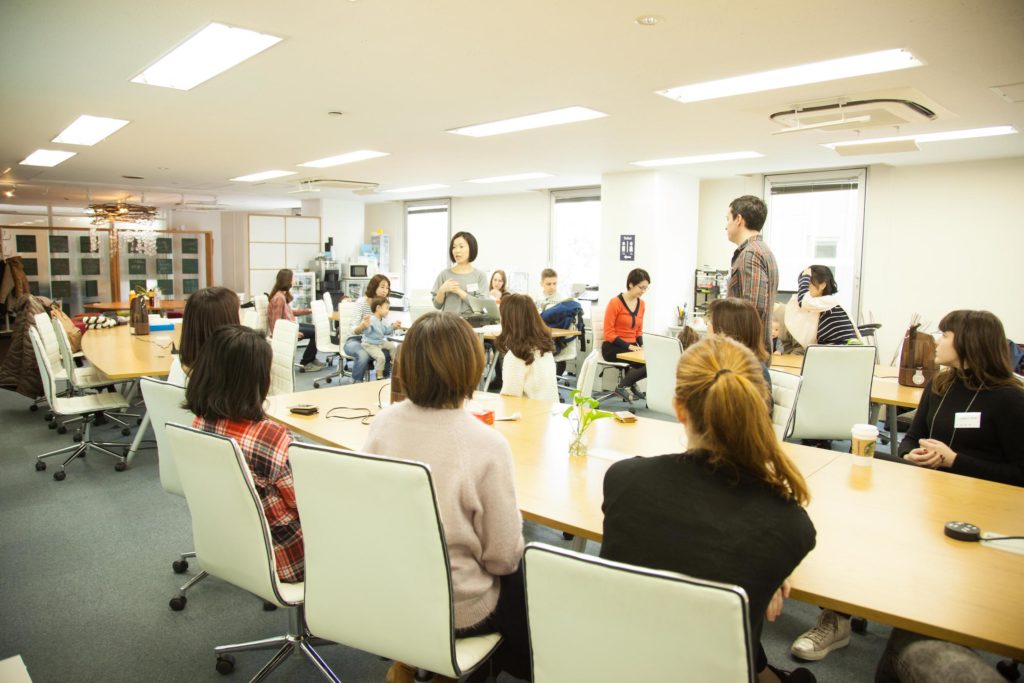
Megumi and Trevor at a company gathering. Parents, sitters and staff’s get-together meetings take place four times a year at CareFinder’s office in Akasaka, Minato-ku and other locations, to sustain communication and help all parties get to know each other well.
How have your lives changed since you started CareFinder?
MM: Now I can share everything [with Trevor]. But also quitting my job, too (was a big change). It was very scary, but also fun, because you can decide everything on your own. Everyday is a learning experience.
TM: For me too. I’ve been doing the same things for a while, but now I’m constantly learning. It helps me push my boundaries and know more about my own limitations. It adds another dimension to my relationship with my wife, too.
What’s the best and the worst about working together as a married couple?
TM: The best part is that we can share the stress. But the problem is — it’s non-stop. You’re on the same page, but the problem is that you don’t get off the page. (Both laugh). That’s why date nights are really good. We’d be divorced if it wasn’t for date nights. You need to have that romantic time together.
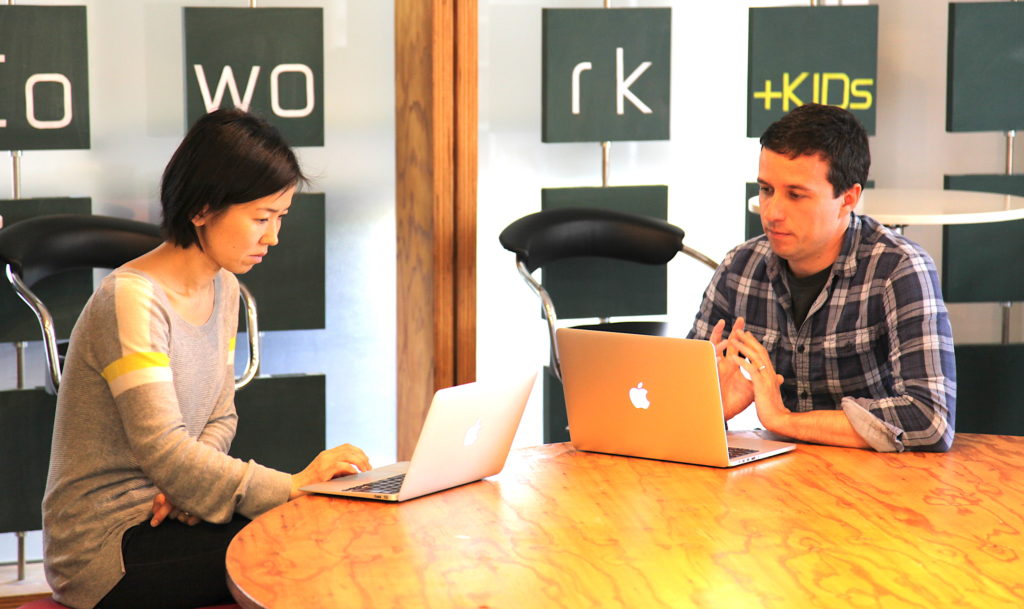
Married and working together: The couple says date nights are essential to keep the marriage and business strong. Now they regularly use CareFinder’s services to look for babysitters when in need for some time away from work together.
When one of you stresses out, how does the other help to make the situation better? What do you do to relax?
MM: It’s a work in progress (laughs).
TM: We tell each other to stop thinking about work and go have a beer. To relax, we try to leave Tokyo at least once a month — we go camping, go to onsen. It’s important to regularly change your perspective.
What differences do you see in your Japanese and non-Japanese friends when it comes to raising children?
TM: I think that there’s a different perception about being a family man and raising kids [in Japan and abroad]. My foreign friends are more active in child rearing in comparison to my Japanese friends. My foreign friends would take care of the kids on weekends, but not all my Japanese guy friends would. I sometimes tell my karate friends that I can’t go to practice because I have a kid now, but they look at me and say, “So?”
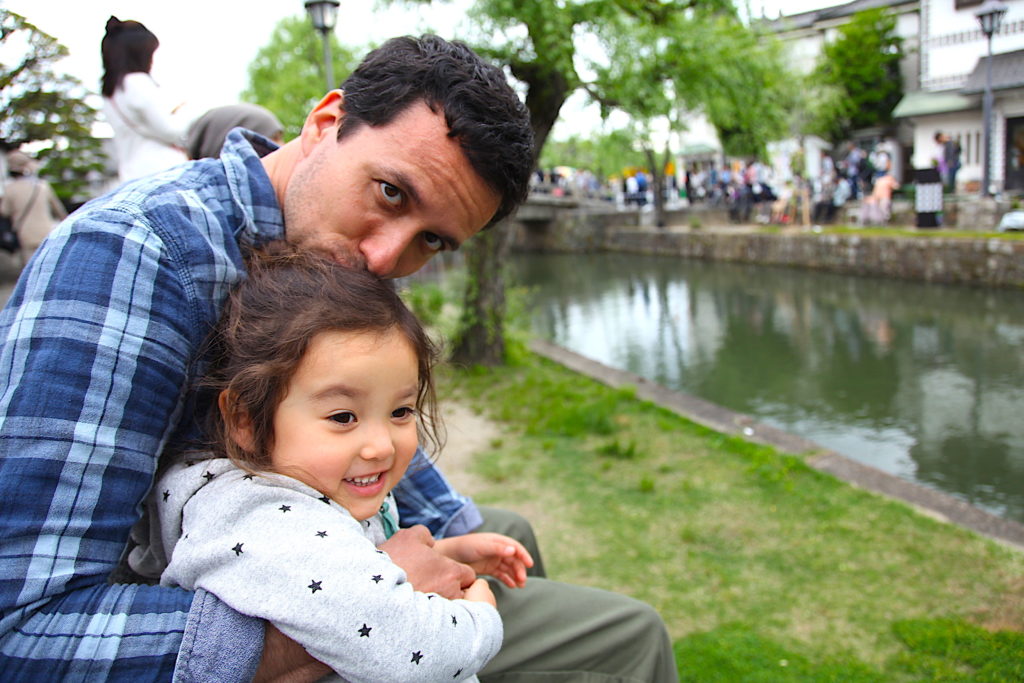
Trevor with their daughter during a family trip away from Tokyo.
Where do you see the company in 10 years?
TM: We want to expand it beyond babysitting, eventually. We’d like to do other care-related services, such as pet care and elder care. Once it’s well established in Japan, we might even move to other markets as well.
What’s the secret to a happy marriage and a successful business in Japan?
MM: It’s a lot of work, but it’s important to approach the other knowing your differences. We are different culturally, as well as by gender.
TM: Communication, too. Sometimes it’s harder being an international couple, but it’s definitely rewarding, too.
To learn more about CareFinder’s services, read this article. CareFinder is also offering a special registration discount for new users until May 31.












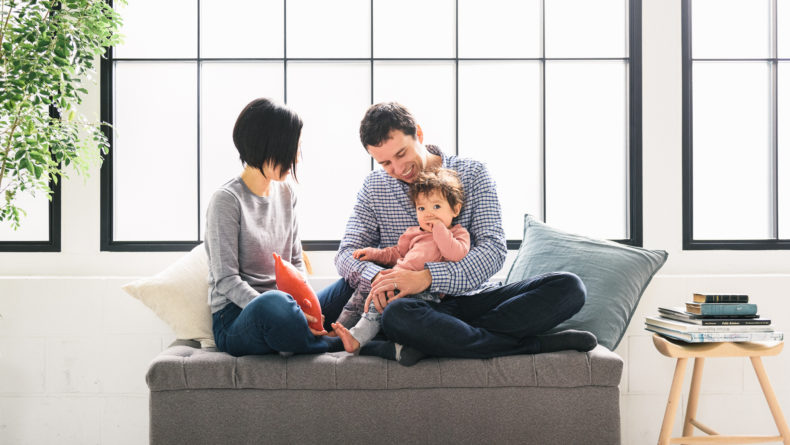

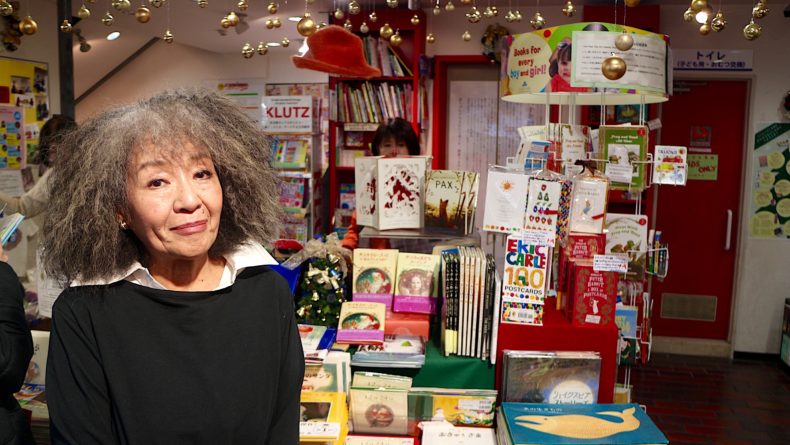
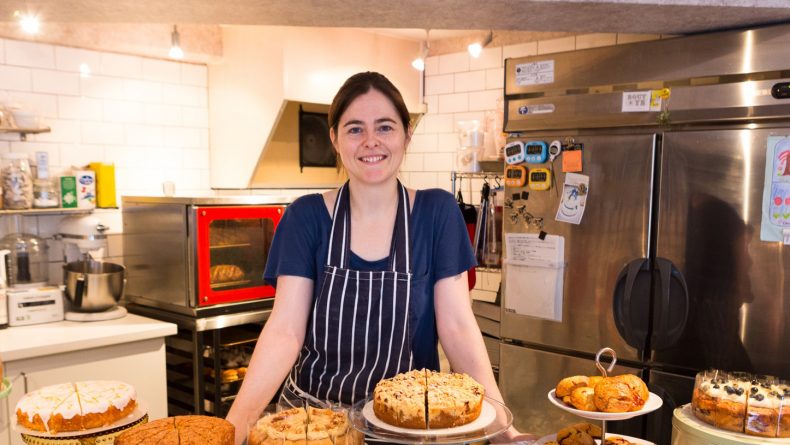
Leave a Reply